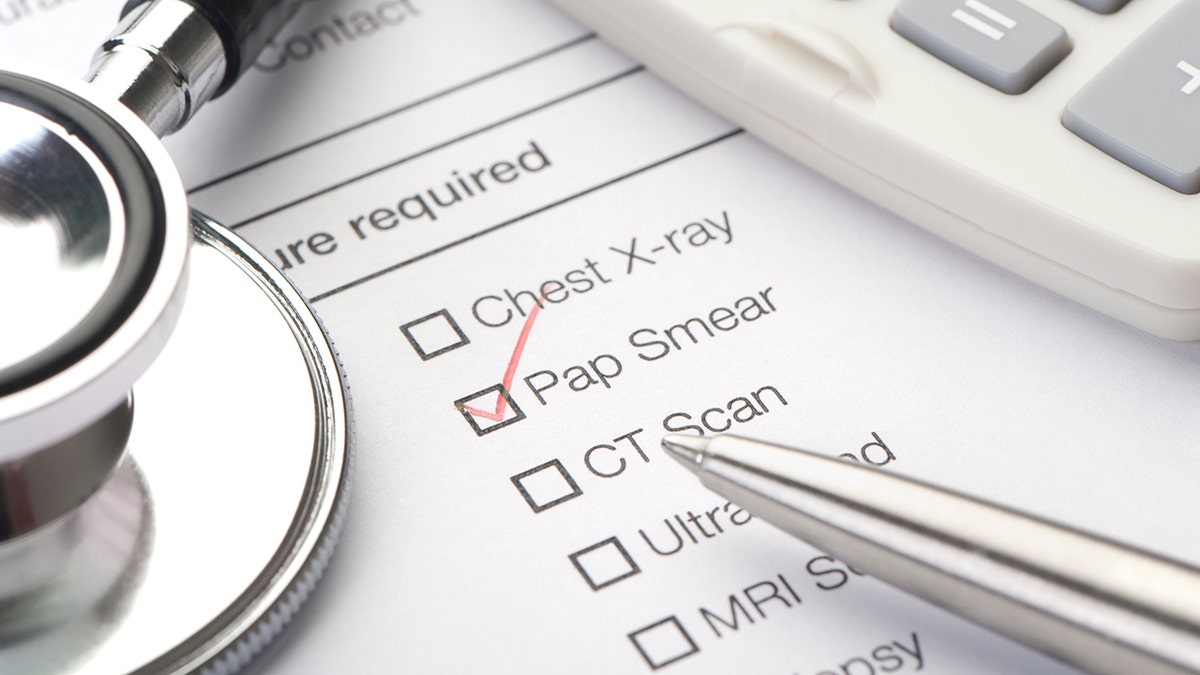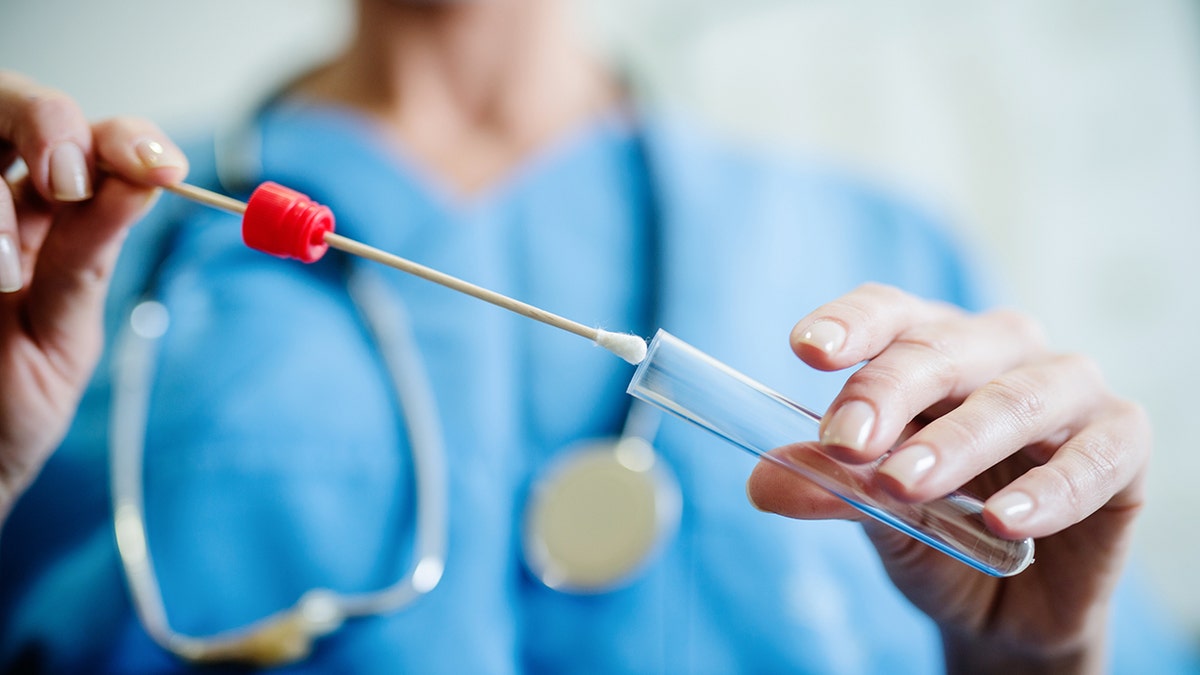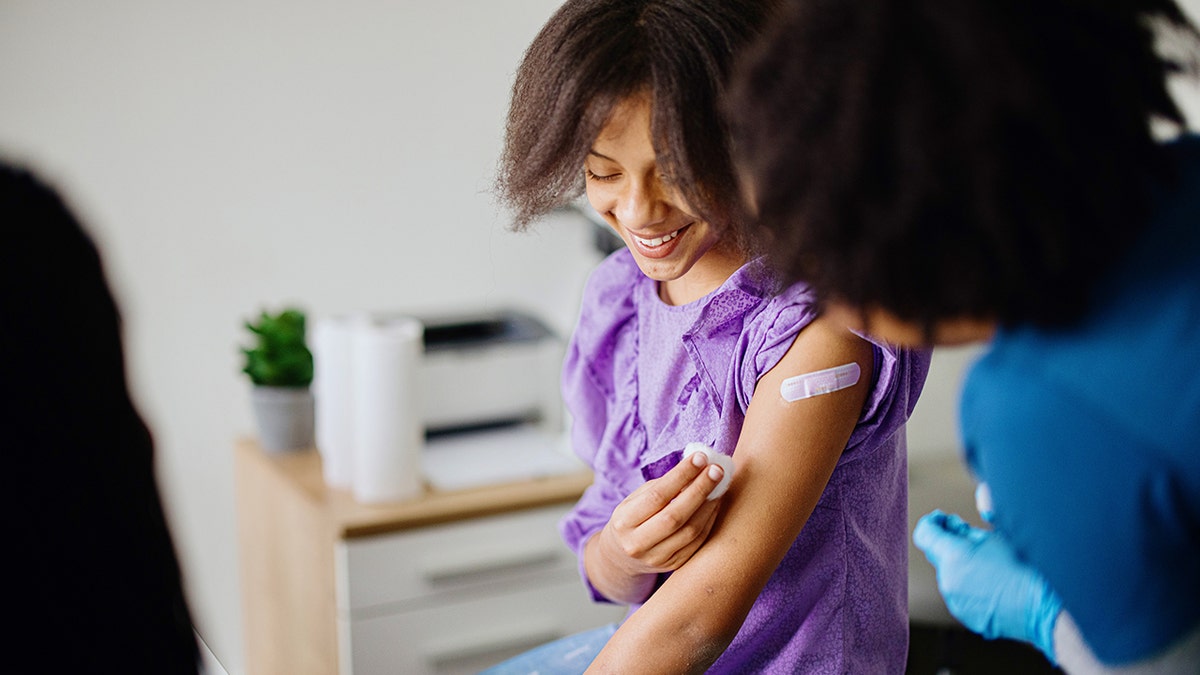A push for more accessible HPV testing is underway.
A new program called SHIP Trial Network, led by the National Cancer Institute (NCI), is exploring testing for human papillomavirus (HPV) via self-collection to prevent cervical cancer, according to a press release.
The Last Mile Initiative, announced at the White House Cervical Cancer Forum on Jan. 25 by NCI’s director Dr. Kimryn Rathmell, will gather data on a self-collection method for HPV.
HPV testing can be crucial for preventing cervical cancer, according to Dr. Brian Slomovitz, director of gynecologic oncology and co-chair of the Cancer Research Committee at Mount Sinai Medical Center in Miami Beach, Florida.
Slomovitz advocated for this self-collection method in an interview with Fox News Digital.
SHIP Trial Network stands for “Self-collection for HPV testing to Improve cervical cancer Preventions.” Screening, said one doctor, “is of the utmost importance.” (iStock)
More than 50% of individuals in the U.S. who have developed cervical cancer have never been or are infrequently screened, according to Slomovitz and NCI.
“We know that screening is of the utmost importance,” he said.
CERVICAL CANCER DRUG RAISES SURVIVAL RATE BY 30% COMPARED TO CHEMOTHERAPY: ‘GAME-CHANGER’
Nicole B. Saphier, M.D. — associate professor at Memorial Sloan Kettering Cancer Center in New York City, director of breast imaging at Memorial Sloan Kettering in Monmouth, New Jersey, and a Fox News medical contributor — reiterated the importance of routine screening for cervical cancer.
“While it’s not practical to screen for all cancers, cervical cancer is certainly one that benefits from routine screening,” she told Fox News Digital.
Nearly 100% (99.7%) of cervical cancers are caused by an HPV infection, according to Saphier.

Many patients are turned off by the “intrusiveness” of pap smears, said one physician. (iStock)
Since pap smears began screening for HPV by taking a sample of the cervix, Saphier noted that cervical cancer mortality has decreased.
One of the limitations of screenings, according to Slomovitz, is a lack of access to providers due to proximity, financial restrictions or other factors.
“Bottom line, anything that works for early cancer detection is important.”
“One of the advantages of at-home testing is that, in essence, it could eliminate a lot of these barriers,” he said.
“Some women may have a job during the week, and they don’t have the time to go to a doctor’s office, or some people don’t have the money to pay for the visit.”
OHIO NURSE AND MOM BEATS CERVICAL CANCER AS EXPERT SHARES WARNING SIGNS YOU SHOULD NEVER IGNORE
Saphier added that many women avoid regular cervical cancer screenings due to the “intrusiveness of the exam,” similar to colon cancer screenings and colonoscopies.
“As such, colon cancer screening[s] with at-home tests have increased colon cancer screening,” Saphier said.

Nearly 100% (99.7%) of cervical cancers are caused by an HPV infection. (iStock)
“The SHIP trial initiative for patients to screen themselves at home for HPV is important, so it can give patients who otherwise would not be screened an option for at-home screening.”
By offering at-home testing, providers are “recognizing the importance of cervical cancer screening, but we’re doing it in such a way that makes it a lot easier for the patients,” Slomovitz noted.
FDA APPROVES FIRST AT-HOME STERILE INSEMINATION KIT TO HELP WITH INFERTILITY: ‘GIVES ME GOOSEBUMPS’
The HPV self-collection, which would come in the form of a vaginal swab, would help identify those women who require an in-office follow-up with a doctor, he said.
Although the swab would have to be sent to a lab for results — requiring an extra step compared to other at-home tests — Slomovitz believes it would still be a popular alternative for patients.

An at-home HPV sample collection would “eliminate a lot of the barriers” that bar patients from being screened at a doctor’s office, an expert said. (iStock)
“The time it takes to go to the doctor’s office and the expense are sometimes prohibitive for the entire population,” he said. “So even with the extra step of mailing it in, this is going to be a lot easier than having to go to the doctor’s office.”
Saphier said her concern about self-collection is that patients “won’t get adequate samples and the test may result in a false negative.”
She added, “Bottom line, anything that works for early cancer detection is important, in my opinion.”
CLICK HERE TO SIGN UP FOR OUR HEALTH NEWSLETTER
“But these at-home tests should be taken with precaution, as they are unlikely to be as sensitive and specific as the gold-standard tests for cancer detection.”
While the test itself isn’t yet ready for “prime time,” Slomovitz pointed out that the SHIP Network is backed by the government and on the road to potential FDA approval.

HPV is “highly preventable” by HPV vaccination and by early detection and treatment of “cervical precancerous changes,” according to NCI. (iStock)
“The best way to treat cancer is to prevent cancer,” he said. “And something like this is definitely a huge step in further prevention.”
NCI reiterated in its press release that HPV is “highly preventable” by HPV vaccination, early detection and treatment of “cervical precancerous changes.”
“These at-home tests should be taken with precaution, as they are unlikely to be as sensitive and specific as the gold-standard tests.”
The NCI has partnered with professional societies to revise and update guidelines for health care workers to integrate self-collection approaches into their clinical practice once the method has been approved, the group wrote.
CLICK HERE TO GET THE FOX NEWS APP
“In addition, NCI is developing a publicly accessible repository of self-collection instructions and educational materials for clinicians, community health workers and people who may use the testing method in the future,” they added.
For more Health articles, visit foxnews.com/health.



